Intuitive Eating Tips For College Students
- May 1, 2019
- Last Updated: January 30, 2022
- 2 Comments
- Intuitive Eating
This post will review key intuitive eating tips for college students and adolescents looking for an intuitive eating guide and how-to.
In my free time, I love going on the lake, playing fetch with my dog, spending time with my friends (especially at coffee shops), and baking. My favorite food to bake is probably chocolate cake, and my favorite food to eat is anything that has a ton of cheese.
Now that you know about me, let’s talk about intuitive eating!
Intuitive Eating Tips to Counteract Diet Pressure
Let’s face it, diet culture is everywhere… but if you think it’s everywhere in the real world, try stepping foot on a college campus.
Tons of students veer to one of two extremes: starving themselves or overeating until they’re uncomfortable. As college students, we lack an understanding about how to properly fuel our bodies. But to be fair, we’ve never learned this.
Diet culture has taken us away from our natural instincts to fuel ourselves.
Most college students wrongly assume that a juice cleanse, the ketogenic diet or even a salad is always the healthiest option. Perhaps the root of this is a skewed perception of health. College students face an insane amount of pressure to be healthy, and most of this pressure manifests itself in a desire to have the “perfect body” and an uninformed desire of what that looks like.
Again, the environment feeds this idea — interpersonal comparison dominates. Oftentimes, good-intentioned campaigns to educate the general public on how to make healthier decisions encourage diet culture without necessarily meaning to.
These influences, unknowingly or not, make it seem like if you’re not running 8 miles every morning, eating avocado toast for breakfast, and choosing a square of dark chocolate over a slice of cake, you’re not “healthy.” (More about the term “healthy” here).
I’d argue that eating healthy in college can and should be more flexible than most people assume, simply because health is multidimensional. Still, eating intuitively in school is hard — activity and movement can vary from day to day, and affordable food isn’t always in reach.
I’ve suffered the consequences of underestimating how much food my body needs, and been left feeling not so great after.
Through my experience so far, I’m sharing 5 tips to help you eat intuitively and fuel your body well in a college setting.
1. Eat Enough
Rumor has it that college students burn less energy than they did in high school because most quit playing sports. But, I see it differently. I, too, quit my high school sport when I came to college. Yet, I move much more fluidly throughout the day than I did in high school and it’s more natural. A normal day for me includes miles of walking around campus, in addition to structured movement of running, yoga, or pilates when I can.
Beyond powering this physical activity, my body needs energy to digest food, pay attention in class, and focus on homework. A lifesaver for me in this area has been carrying snacks.
I really enjoy energy bars, particularly RXBAR Kids, since these bars are portable, delicious, and just enough to hold me over until I can get to the dining hall or my dorm so that I can eat something more filling and satisfying.
Next time you hit the grocery store, try picking up a variety of snacks that are effortless. The best on-the-go snacks don’t require much thinking or doubting. Take note of which appeal to your taste buds and make your body feel its best.
2. Eat a Variety of Foods
I’m a creature of habit. While I enjoy foods from a wide variety of cultures, breaking my habit of eating the same thing over and over has taken some effort.
Still, it’s been a conscious and rewarding choice for me. Trying different foods has prevented me from labeling foods as “good” or “bad.”
Additionally, it’s prevented me from winding up in a rut regarding the food that I eat. The more I experiment with foods, the more excited I am to try new things.
As a result, the more in-touch with my body’s food needs I become. I can tune in to what foods I enjoy and find satisfying.
3. Take Advantage of the Chance to Socialize
Food is social, like Sarah mentions often. One of my favorite “study breaks” is taking the time to grab meals with friends.
These experiences boost my mood, which nourishes my physical mental and emotional health. They also help me to take my time while I eat.
I find that by slowing down and eating without stressful distractions, I eat more mindfully. Also, I can better sense signals of fullness or remaining hunger. I know it’s easy to think about eating with others as a stressful experience. However, I’ve found the opposite to be true.
4. Make Friends with the Dining Hall
I know, I know — I would rather eat a home cooked meal, too, but that’s normally not an easy option when you live in a dorm like I do. Thankfully, dining halls nowadays are becoming easier to navigate as well as stocking healthier and more versatile choices.
I thoroughly appreciate that the dining hall at my school posts the menus and allergy/nutrition information for the foods on their website. I won’t lie, the dining hall menu page is a favorite on my phone.
It’s so easy to pull it up and quickly choose where to eat based on what I’m feeling in the moment. I love embracing food flexibility in this way.
Plus, the foods are all labeled with allergen information, so choosing meals is easy for those with medical necessities around food, too. The dining halls also have to-go boxes and cups that are perfect to fill with food for snacks or future meals.
My favorite combinations are banana with freshly-ground peanut butter, the soup of the day, trail mix (I throw in some nuts, granola, craisins, and chocolate chips), or a salad. By thinking ahead, I can be prepared to listen to my hunger cues later in the day and not skip a meal or snack because I’m not prepared.
5. Treat Yourself
Eating involves a whole lot more than monotonously putting calories into your mouth. Eating is easily communal, and it fosters conversation and laughs. Make the choice to go out for frozen yogurt or grab burgers with friends while you watch the game. Enjoy food and enjoy yourself in situations where food is present.
Eating healthy does not have to be boring and all-consuming like diet culture is. Everyone has different food needs, but none of them should be bland or exhausted.
Whatever makes your body feel its best, eat that food because no one is telling you otherwise.
More importantly, enjoy the process. Eating enough and fueling the body positively affects countless other aspects of life and honoring your energy needs is one of the greatest self-care choices you could make for yourself.
Support Bucket List Tummy

















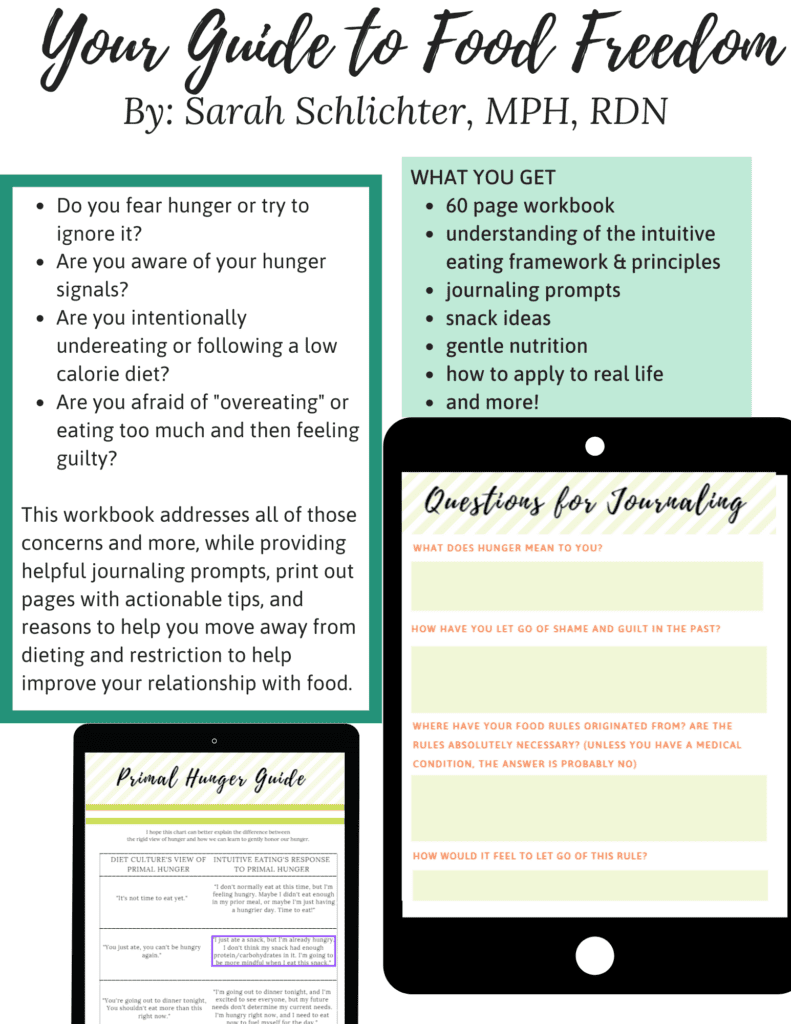
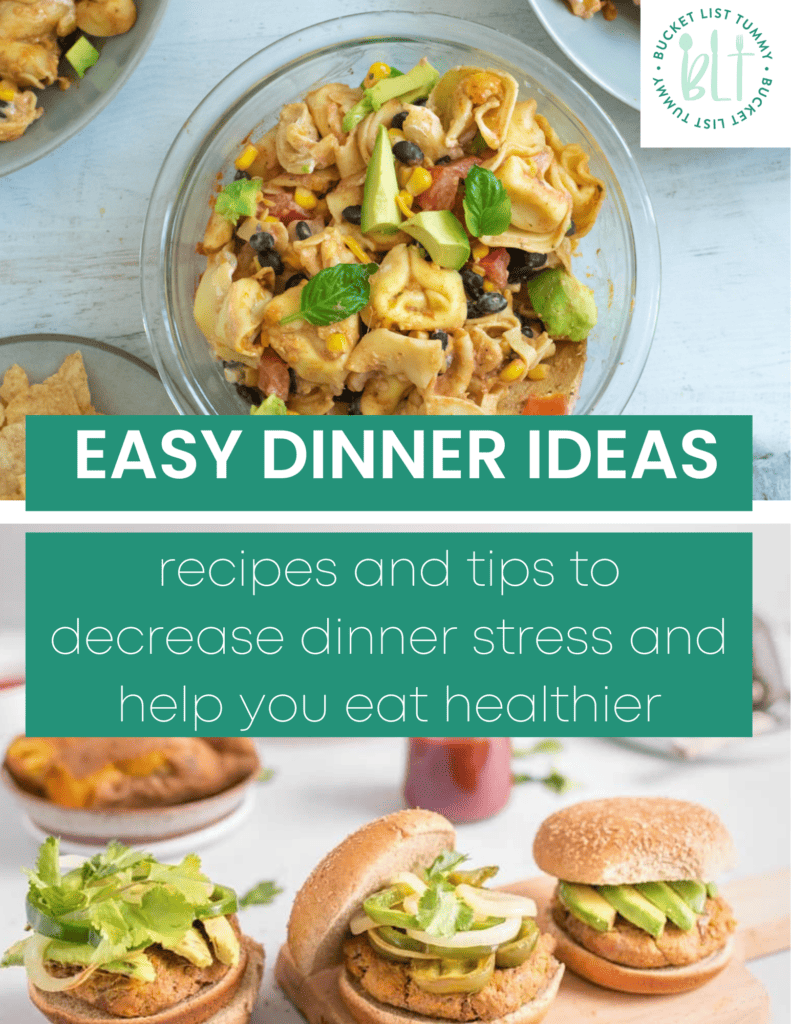


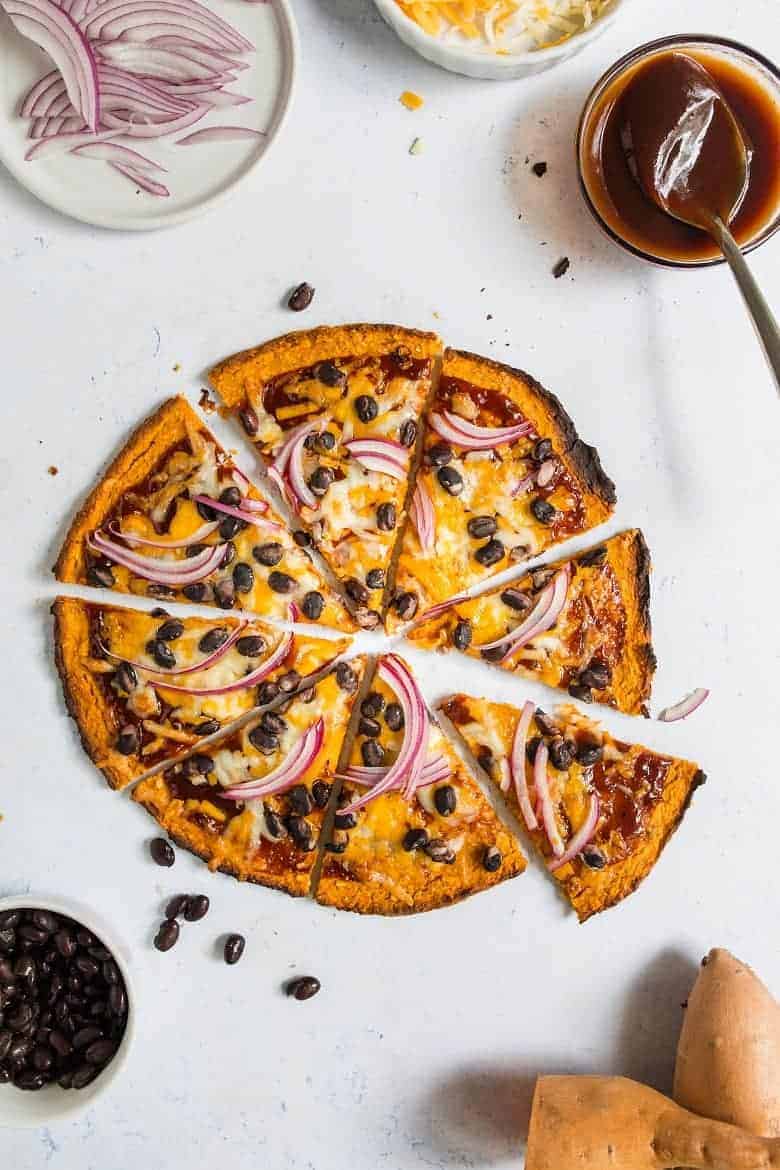
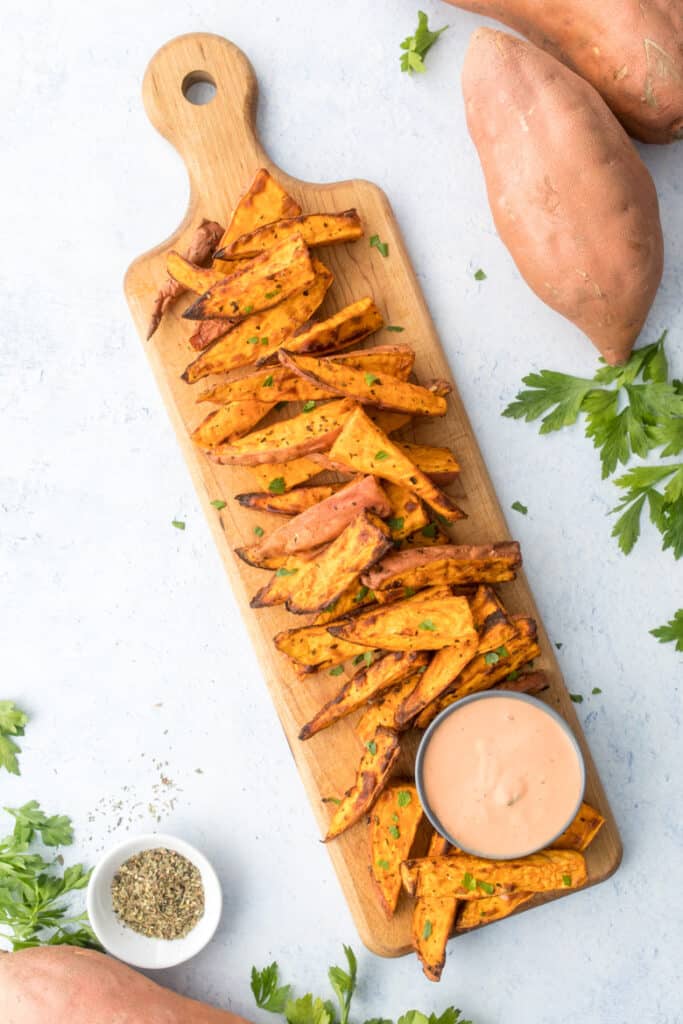

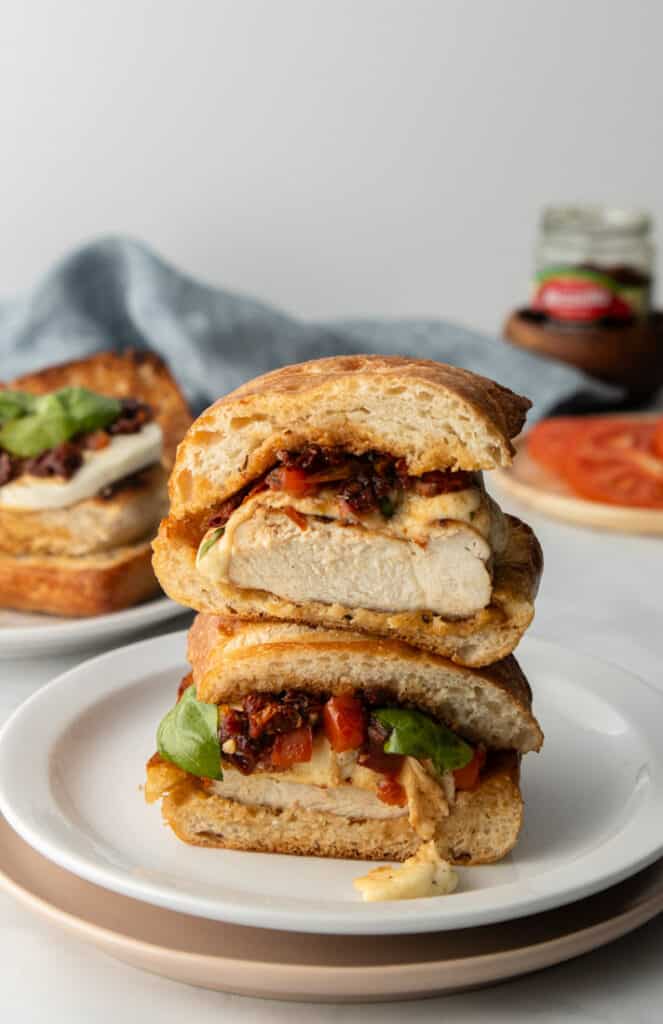
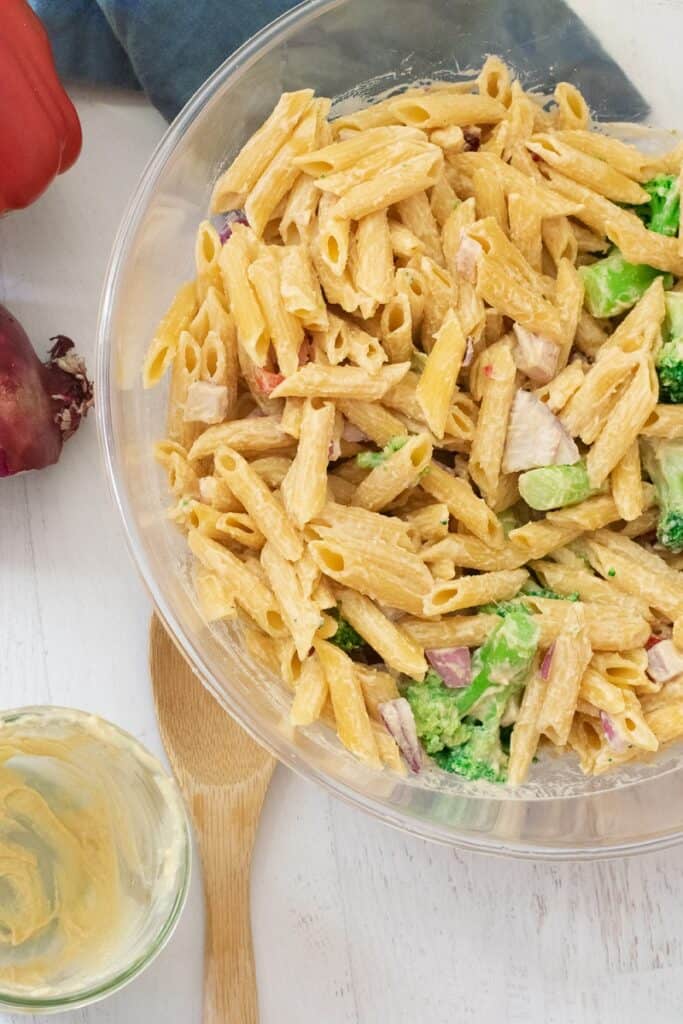



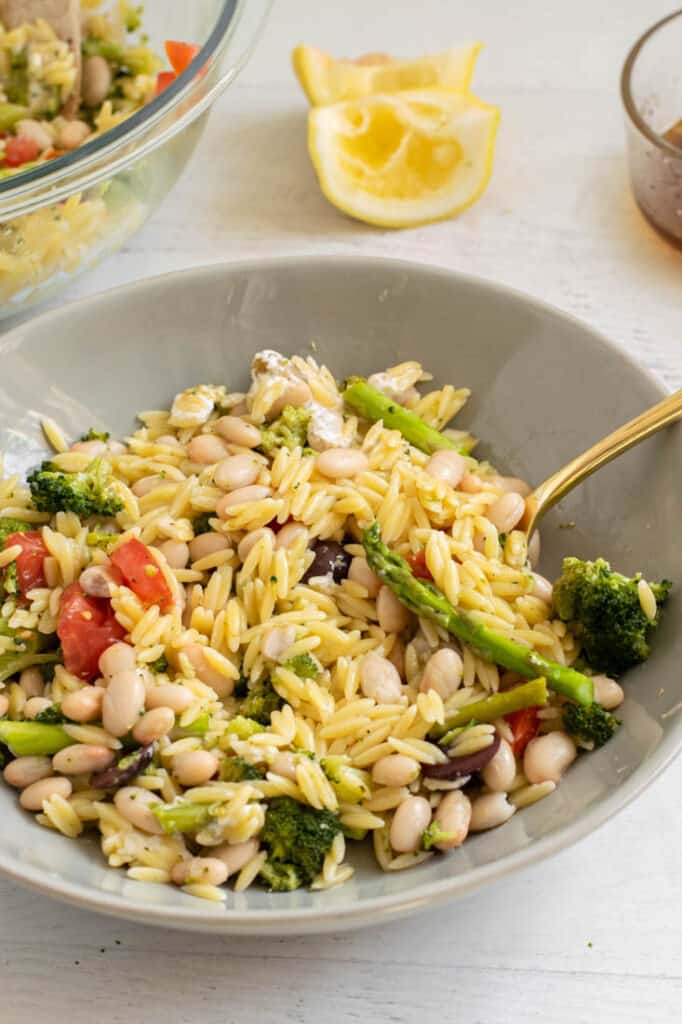

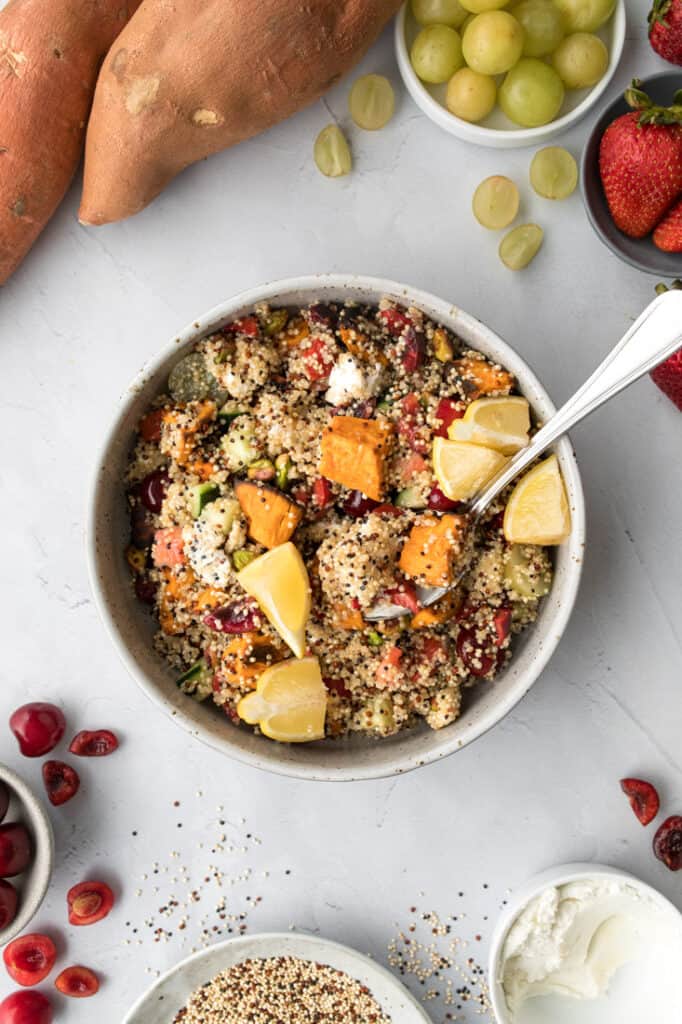

Like This Content?
Support Bucket List TummyGreat post!! Nice to meet you, Hope!
Hope is so cute! Great post on how to eat intuitively when you are limited to options based on what a dining hall is offering.